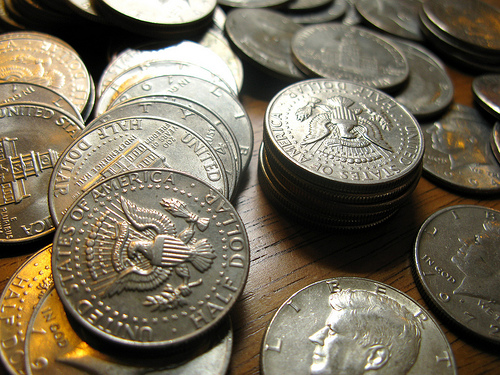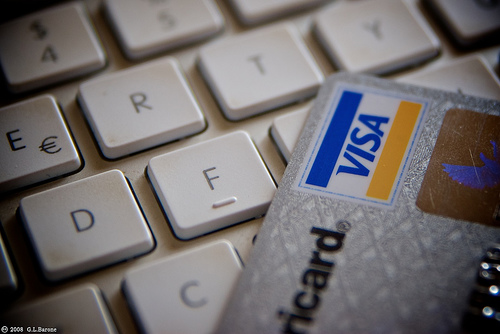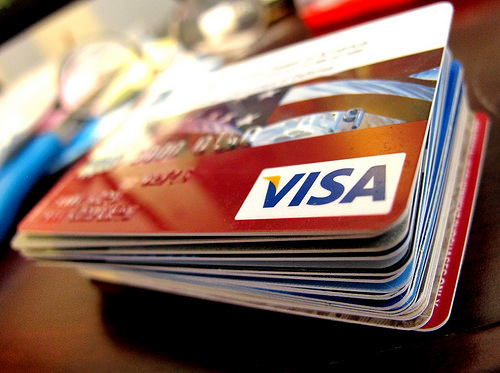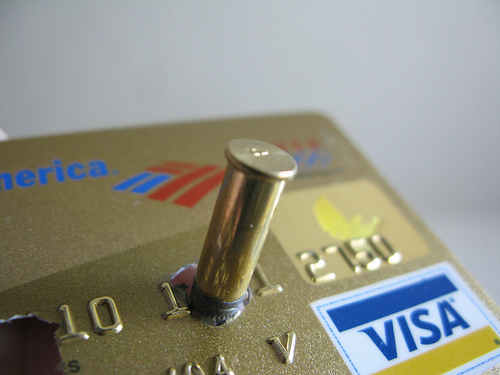
by Adam | Mar 27, 2015 | Credit Repair
If someone walked up to you right now and asked you about your credit score, would you have an answer? Considering around 60 percent of Americans don’t know their credit score, it’s likely that you wouldn’t be able to answer this question. However, considering your credit score can cost or save you thousands of dollars, learning more about this magic number is important. Below you’ll find broken-down basics– the what, why and how – of credit scores so you can know you number and how to make it benefit you. What is a Credit Score? Your credit score is essentially a number that represents your worthiness of credit. Do you pay bills on time? Are you in debt? Are you a spender? The FICO scale (or Fair Isaac Corporation scale) ranges your credit score from a low 300 to a high 850. After pulling credit information from different lending networks, FICO compiles a report on you that reflects your creditworthiness, or credit score. Why Does My Credit Score Vary? Because FICO uses three different credit bureaus to calculate your score – Equifax, Experian, and TransUnion – you actually have three different FICO scores that can vary by as many as 50 points. Your score can also vary depending on your spending habits, monthly income, debt management and many more factors. FICO has developed credit score ranges to gauge your creditworthiness: 300-579: You have bad credit. It will be difficult to obtain a credit card, be approved for loans and more. 580-629: Your have poor credit. Though you might qualify for a credit card, its limits will and its rewards...

by Adam | Mar 20, 2015 | Credit Repair
When a friend or relative approaches you with the opportunity to cosign on a loan, you may feel a variety of emotions. Whether you feel concerned, or excited to help a friend, there are many things you should know before you make this decision. The truth of the matter is, although cosigning on a loan may seem like a good idea, it almost never is. For a cosigner, a loan is a risky choice with very little reward involved. The main reason a person requires a cosigner is because the lending institute deems them a high risk consumer and views them as unlikely to pay, which can potentially leave a cosigner in the position of being primarily responsible for repayment. Here are a few things you should know before you even consider cosigning a loan to help out a friend or family member. It’s a Risky Proposition The first, and perhaps most important element of cosigning a loan is that it is extremely risky. When you get a loan for yourself the rewards often outweigh the risk, but when you cosign, the rewards are small, if there are any rewards at all. Cosigning can have a positive effect on your credit if payments are made regularly, but the effect is minimal. If payments are not made, on the other hand, the hit on your credit will be much larger. You are Responsible in the Eyes of the Lending Institute Because the loan recipient could not have qualified for the loan without your signature, the lending institute will hold you primarily responsible for loan repayment. This means that if payments...

by Adam | Mar 13, 2015 | Credit Repair
On Monday March 9, 2015 the three main credit reporting agencies announced major changes to the way they will handle disputes and report medical bills. Equifax, Experian, and TransUnion announced the agreement after months of negotiations with New York state Attorney General Eric Schneiderman. The goal of these new rules is to reduce reporting errors and make them easier to correct. These credit reports are used to determine your credit score, which affects your ability to get a loan and is used to determine the amount of interest you’ll pay. How will these new reporting rules affect you and your score? Increased Quality And Accuracy The reporting agencies are focusing on increasing the accuracy of reports and handling disputes. Changes include: Eliminating reports on debts that didn’t originate from a contract or agreement—for example, this would stop reporting on tickets and fines Working to help victims of fraud and identity theft Helping consumers navigate the credit bureaus by providing instructions when there is a dispute Increasing transparency by giving customers more information when they contest a claim These changes are intended to make it easier for consumers to contest claims and correct errors. Medical Bills The reporting agencies are overhauling the way they handle medical bills in an effort to improve the accuracy and quality of reports. There will now be a 180-day waiting period before medical bills are reported. This change is designed to allow insurance payments to go through and to give consumers a chance to handle any discrepancies. The reporting agencies will also remove previously reported medical debt that has been paid by insurance. This is...

by Adam | Mar 5, 2015 | Credit Repair
Are you struggling with bad credit and can’t figure out why? You’re not alone. There are several sneaky factors that lower your credit; simple things like applying for new credit or closing a credit card account can cause serious damage your credit score. Read the following 12 things that can also hurt your credit while appearing seemingly harmless. 1. Late Payments Because your payment history equates to 35% of your credit score, frequent late payments on credit card bills can greatly damage your credit score. 2. Avoiding Payments on Parking Tickets Many places in the U.S. send all unpaid parking tickets to collection agencies. The larger your account grows with collection agencies, the more damage is done to your credit. 3. Requesting an Increase on Your Credit Limit Though requesting an increase may help your credit in the long run, it can cause serious damage to your short-term credit if it initiates a serious inquiry into your credit. 4. Renting a Car with a Debit Card If you choose to pay for a rental car deposit with a debit card, the rental company had the right to pull your credit report. This causes a hard inquiry of your credit and can ultimately lower your score a few points. 5. Defaulting on a Loan Loan defaults, which are similar to credit card charge-offs, prove that you have not upheld your end of the loan contract and will likely hurt your credit. 6. Maxed Out Credit Cards Over-the-limit or maxed out credit card balances equate to 100% of your credit utilization and can be, perhaps, the most damaging thing you can do to your credit. 7. Financing a...

by Adam | Feb 27, 2015 | Credit Repair
A credit card can be a powerful tool if you use it correctly. One of the biggest advantages of using a credit card is getting the rewards that accumulate every time you make a purchase. Use the following tips to make sure you are getting the most out of your credit card. 1. Choose Something You Will Use There are many different rewards cards to choose from. Some cards offer cash back, some offer gift cards, some offer discounted merchandise and some offer travel discounts. The best rewards for you are the ones you will use. Cash Back This is the simplest and most practical option. With cash back, you are free to use your rewards for whatever you choose—there are no restrictions. If you aren’t sure which rewards you’d use most often, go with cash back and keep your options open. Gift Cards Gift cards are a great option if you’ll actually use them. Don’t settle for a rewards card that gives you gift cards to an obscure restaurant 3 cities away—choose one that will give you gift cards for stores you already shop at regularly. Merchandise Merchandise rewards can be fun, but make sure the products available are things you’d normally want. If you’d already planned on purchasing a new camera or blender, this could be a great option. If you would never buy those speakers on your own, merchandise rewards might not be the best fit for you. Travel Mileage And Points Travel discounts are very valuable rewards—as long as you can use them. Remember that many rewards programs come with restrictions about how you can use...

by Adam | Feb 13, 2015 | Credit Repair
For many people, credit card use becomes a cycle of debt that can be difficult to get out of. It may seem like all your efforts to chip away at your debt are fruitless, and that adding more to your credit card balances is the only way to stay afloat. People in a cycle of credit card debt often live paycheck to paycheck, with nothing left over to add to savings. Fortunately, you can break the cycle. With dedication and some advanced planning, you can pay down your credit cards and keep yourself from slipping back into debt. But how? Here are the steps you can take to gain control of your finances and remain free from the crippling cycle of credit card debt. 1. Combat feelings of hopelessness First, remind yourself that getting out of debt is achievable. If you foster feelings of hopelessness, with thoughts such as “I can never pay off my high credit card balances, so why bother,” then you’ll never find the motivation necessary for success. Instead, tell yourself that getting out of debt is not only possible, but easier than you think. It’s going to take some time, and you may feel like you’re not making much progress, but little by little you’ll be closer to your goals of financial stability. 2. Force yourself to stop using your credit cards To get out of debt, you can’t continue to add to your already-bulging credit cards. Months of payments can be eliminated by a few purchases, so eliminate the option entirely. The simplest way to reduce credit card debt is to stop using them altogether while you’re paying them...








Recent Comments